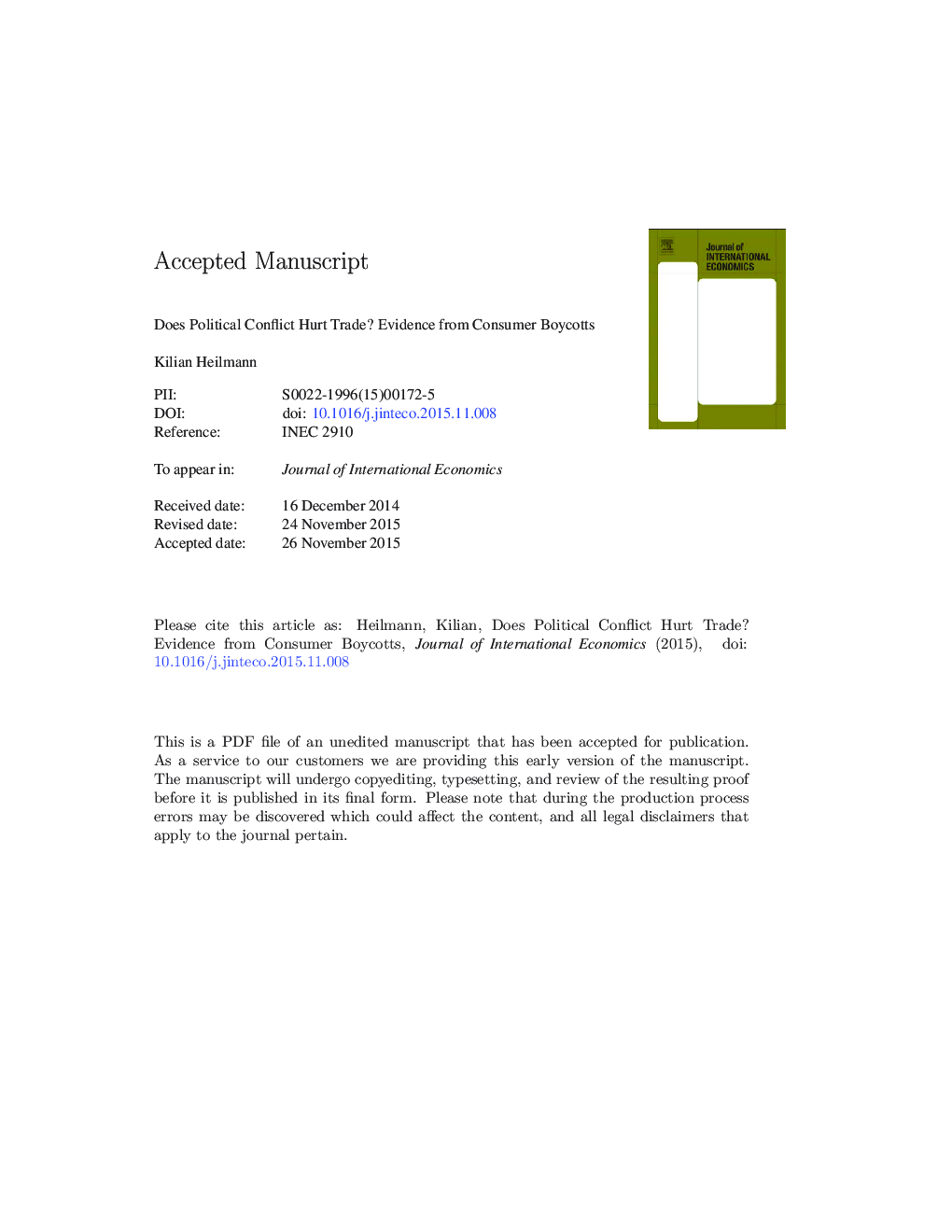| Article ID | Journal | Published Year | Pages | File Type |
|---|---|---|---|---|
| 7364124 | Journal of International Economics | 2016 | 44 Pages |
Abstract
I estimate the impact of international conflict on bilateral trade relations using several incidents of politically motivated boycotts: The boycott of Danish goods by Muslim countries following the Muhammad Comic Crisis in 2005/2006, the Chinese boycott of Japanese goods in response to the Senkaku/Diaoyu Island conflict in 2012, the boycott of French products in the US over the Iraq War in 2003, and Turkey's boycott of Israel over the Gaza conflict in 2014. The results from difference-in-differences regressions and the synthetic control group method show that boycotts can have strong negative effects on bilateral trade in both goods and services. I estimate an average one-year trade disruption of 18.8% in the case of Denmark, 2.7% for Japan, and 1.7% for French imports, where in the latter two cases this effect is only short term. For all boycott instances, this is only a minor share of overall exports of the boycotted country over the same period. For the Iraq and Gaza conflicts, there is a reciprocal negative effect on the boycotted countries' imports from the boycotter. Product-level results are in line with intuition: Boycotts are most effective for consumer goods, especially highly-branded signature export goods such as Japanese cars, while having at most a temporary effect on intermediates and capital goods. An event study on Japanese stock market returns suggests that the Chinese boycott depressed stock values of explicitly boycotted Japanese firms only temporarily.
Related Topics
Social Sciences and Humanities
Economics, Econometrics and Finance
Economics and Econometrics
Authors
Kilian Heilmann,
